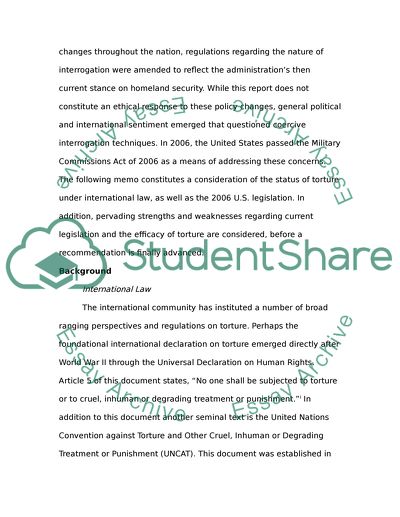Cite this document
(“In the wake of 9/11, a call went out to take the gloves off in the Research Paper”, n.d.)
In the wake of 9/11, a call went out to take the gloves off in the Research Paper. Retrieved from https://studentshare.org/military/1439574-in-the-wake-of
In the wake of 9/11, a call went out to take the gloves off in the Research Paper. Retrieved from https://studentshare.org/military/1439574-in-the-wake-of
(In the Wake of 9/11, a Call Went Out to Take the Gloves off in the Research Paper)
In the Wake of 9/11, a Call Went Out to Take the Gloves off in the Research Paper. https://studentshare.org/military/1439574-in-the-wake-of.
In the Wake of 9/11, a Call Went Out to Take the Gloves off in the Research Paper. https://studentshare.org/military/1439574-in-the-wake-of.
“In the Wake of 9/11, a Call Went Out to Take the Gloves off in the Research Paper”, n.d. https://studentshare.org/military/1439574-in-the-wake-of.


